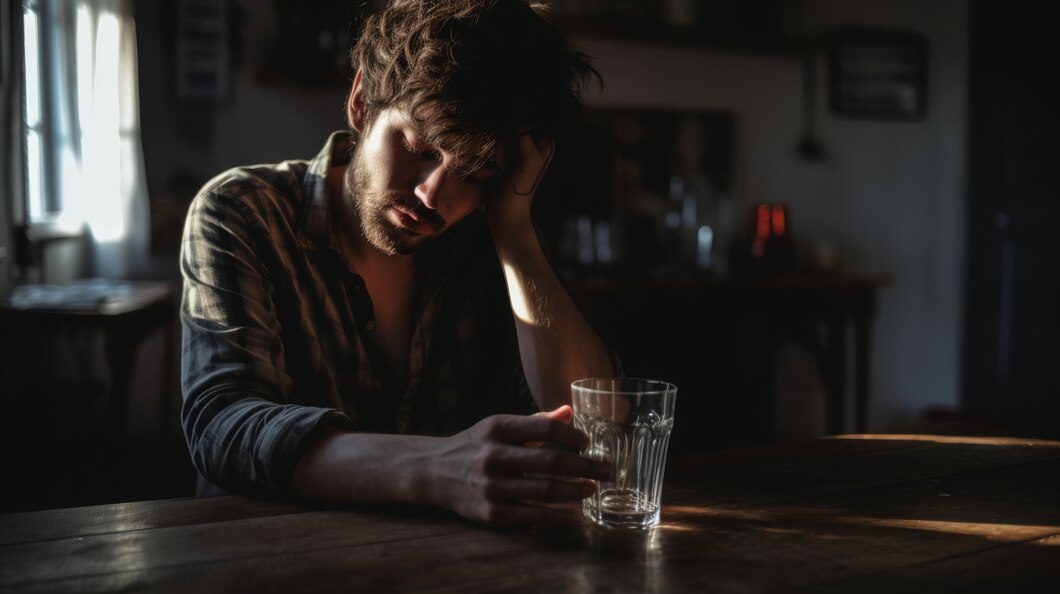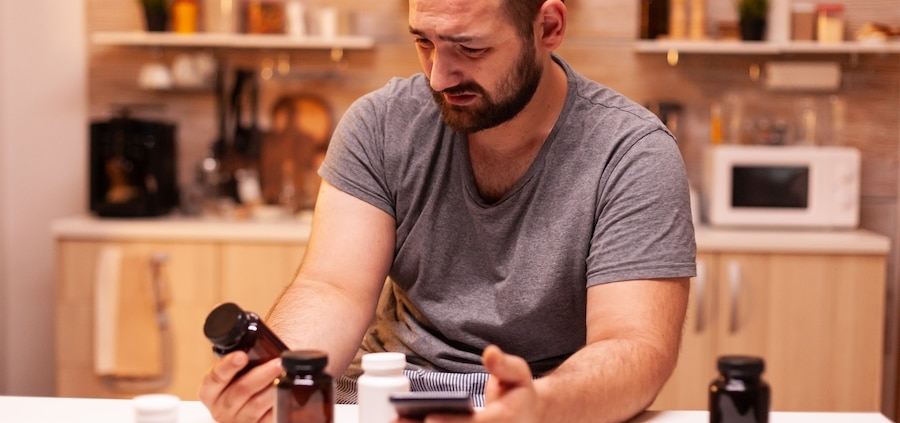Substance abuse is a pervasive issue that affects millions of individuals and their families worldwide. Its insidious nature not only causes significant harm to the person struggling with addiction but also exerts a profound impact on their loved ones, particularly their partners. While individual treatment programs have long been the standard approach, the unique challenges faced by couples dealing with substance abuse necessitate a more integrated and collaborative form of intervention. This is where couples rehab comes into play.
Couples rehab centers offer specialized programs designed to address the intricate dynamics of relationships strained by addiction. These programs aim to heal both partners simultaneously, fostering a supportive environment where each individual can work on their recovery while also rebuilding trust and intimacy in their relationship. By treating the couple as a unit, these programs provide a comprehensive approach that acknowledges the interconnectedness of their struggles and triumphs.
In this article, we will delve into the multifaceted issue of substance abuse, exploring its definition, types, causes, and symptoms. We will examine the profound impact it has on couples, from emotional and psychological effects to financial and social repercussions. Furthermore, we will outline the key components of couples rehab, including joint therapy sessions, individual counseling, and support systems that are crucial for long-term recovery. Through this exploration, we aim to shed light on the importance of addressing substance abuse within the context of a relationship and how couples rehab can offer a pathway to healing and renewed connection.
Couples Rehab Services
Understanding Substance Abuse
Substance abuse refers to the harmful or hazardous use of psychoactive substances, including alcohol and illicit drugs. It is a complex condition that affects a person’s brain and behavior, leading to an inability to control the use of these substances despite adverse consequences. Understanding substance abuse involves delving into its definitions, types, causes, risk factors, and the signs and symptoms that indicate a problem.
Definition and Types
Substance abuse is defined as a pattern of harmful use of any substances for mood-altering purposes. It encompasses a range of behaviors from the occasional misuse of substances like alcohol or prescription medications to the compulsive use of illicit drugs.
The types of substances commonly abused include:
- Alcohol: Often socially accepted, alcohol can be highly addictive and lead to severe health problems.
- Prescription Medications: Painkillers, sedatives, and stimulants are commonly misused.
- Illicit Drugs: This category includes drugs like heroin, cocaine, methamphetamine, and ecstasy.
- Over-the-Counter Medications: Some cough syrups and cold medications can be misused for their psychoactive effects.
Causes and Risk Factors
The causes of substance abuse are multifaceted, involving a combination of genetic, environmental, and psychological factors.
- Genetic Predisposition: Family history of addiction can increase the likelihood of substance abuse.
- Environmental Influences: Factors such as peer pressure, exposure to drug-abusing environments, and socio-economic status play significant roles.
- Psychological Factors: Mental health disorders like depression, anxiety, and PTSD are often linked to substance abuse as individuals may use substances as a coping mechanism.
- Developmental Factors: Adolescents and young adults are particularly susceptible due to the ongoing development of the brain and the desire to experiment.
Signs and Symptoms
Identifying substance abuse can be challenging, but there are common signs and symptoms to be aware of:
- Behavioral Changes: Increased secrecy, changes in social circles, neglecting responsibilities, and erratic behavior.
- Physical Symptoms: Bloodshot eyes, sudden weight loss or gain, changes in sleep patterns, and deterioration of physical appearance.
- Psychological Indicators: Mood swings, increased irritability, feelings of paranoia, and a noticeable lack of motivation.
- Substance-Specific Symptoms: Each substance has specific signs, such as slurred speech for alcohol abuse or dilated pupils for stimulant abuse.
Understanding these elements is crucial for recognizing and addressing substance abuse effectively. The next section will explore how substance abuse specifically impacts couples, contributing to emotional, psychological, and social challenges that necessitate specialized treatment approaches like couples rehab.
Impact of Substance Abuse on Couples
Substance abuse extends its detrimental effects beyond the individual to impact their relationships, particularly those with their significant others. When one or both partners struggle with substance abuse, the ripple effects can permeate every aspect of their relationship, leading to a host of emotional, psychological, financial, and social challenges.
Emotional and Psychological Effects
Substance abuse invariably leads to a deterioration in mental and emotional well-being. For couples, this can manifest as increased irritability, mood swings, and emotional withdrawal. The partner struggling with substance abuse may become more secretive, dishonest, or emotionally unavailable, which can erode the trust and intimacy that are foundational to a healthy relationship. The non-using partner may experience feelings of helplessness, frustration, and anxiety, often resulting in a heightened emotional distance between the two.
Moreover, substance abuse can exacerbate pre-existing mental health issues or give rise to new ones, such as depression and anxiety. The emotional toll on both partners can lead to a vicious cycle where substance use becomes a misguided coping mechanism, further deepening the emotional chasm.
Relationship Strain
The strain on the relationship is often palpable. Arguments and conflicts become more frequent and intense, often revolving around the substance use itself, trust issues, and unmet responsibilities. The partner who does not abuse substances may feel a growing resentment, leading to feelings of detachment and isolation. Communication, the bedrock of any healthy relationship, deteriorates as misunderstandings and accusations become commonplace.
In some cases, the stress and tension can escalate to verbal, emotional, or even physical abuse, further fracturing the relationship. The chronic stress associated with living with a partner who abuses substances can also compromise the health and well-being of both individuals, making it even more challenging to maintain a stable and loving relationship.
Financial and Social Consequences
The financial repercussions of substance abuse can be severe and far-reaching. Money that would otherwise be allocated to essential expenses, savings, or recreational activities is diverted to fund the substance use. This financial strain can lead to unpaid bills, debt, and even legal issues, further compounding the stress on the relationship.
Socially, couples dealing with substance abuse may find themselves increasingly isolated. Friends and family members may distance themselves, either due to disapproval of the substance use or the erratic behavior it often causes. This social isolation can leave both partners feeling unsupported and alone, making it even more challenging to seek the help they need.
The impact of substance abuse on couples is multifaceted and profound, affecting emotional stability, relational harmony, and financial security. Addressing these issues requires a comprehensive and compassionate approach, often necessitating professional intervention and a strong support network.

Couples Rehab Approach
Substance abuse not only affects the individual but also takes a significant toll on relationships, particularly romantic partnerships. Couples rehab offers a holistic approach to recovery that addresses both partners’ needs, fostering healing and growth together. This approach recognizes that a strong, supportive relationship can be a powerful tool in overcoming addiction. Here, we explore the key components of the couples rehab approach:
Joint Therapy Sessions
Joint therapy sessions are a cornerstone of the couples rehab approach. These sessions provide a safe space for partners to communicate openly about their struggles, feelings, and experiences related to substance abuse. With the guidance of a trained therapist, couples can work through underlying issues that may have contributed to the addiction. This collaborative process helps to rebuild trust, improve communication, and strengthen the emotional connection between partners. Joint therapy also allows couples to develop healthy coping mechanisms and strategies to support each other in sobriety.
Individual Counseling
While joint therapy is essential, individual counseling is equally important in couples rehab. Each partner is given the opportunity to explore their personal challenges, traumas, and triggers in a one-on-one setting with a counselor. This individualized attention ensures that both partners receive the specific support they need to address their unique issues. It also provides a space for personal growth and self-discovery, which can enhance the overall effectiveness of the joint therapy sessions. By working on themselves individually, partners are better equipped to contribute positively to the relationship and support each other’s recovery journey.
Support Systems and Aftercare
Successful recovery from substance abuse requires ongoing support and maintenance. Couples rehab programs often incorporate robust support systems and aftercare plans to ensure long-term success. This can include group therapy sessions, where couples can connect with others who are facing similar challenges, fostering a sense of community and shared understanding. Additionally, aftercare plans may involve continued counseling, regular check-ins with therapists, and participation in support groups such as Narcotics Anonymous (NA) or Alcoholics Anonymous (AA). These resources provide couples with the tools and encouragement they need to maintain sobriety and navigate the complexities of life after rehab.
In summary, the couples rehab approach is a comprehensive strategy that addresses the multifaceted nature of substance abuse within a relationship. By combining joint therapy sessions, individual counseling, and ongoing support systems, this approach aims to heal both the individuals and the relationship, paving the way for a healthier, more fulfilling future together.
Find Treatment for Substance Abuse Near You
Substance abuse is a profound and complex issue that affects not only the individual but also their relationships, particularly those with their partner. Understanding the definition, types, causes, and symptoms of substance abuse is crucial for identifying and addressing the problem early on. The impacts of substance abuse on couples can be severe, encompassing emotional and psychological distress, relationship strain, and financial and social challenges.
Couples rehab offers a comprehensive approach to tackling substance abuse within the context of a relationship. Through joint therapy sessions, couples can work together to rebuild trust and improve communication. Individual counseling provides each partner with the opportunity to address their personal struggles and develop coping mechanisms. Support systems and aftercare plans are essential for maintaining sobriety and fostering a healthy, supportive environment post-rehabilitation.
By addressing substance abuse with a tailored approach that considers both partners, couples rehab aims to heal relationships and promote lasting recovery. It is a journey that requires commitment, understanding, and support, but with the right resources and dedication, couples can overcome the challenges of substance abuse and build a stronger, healthier future together.

FAQs
Understanding Substance Abuse
- What is the definition of substance abuse?
Answer: “What is Substance Abuse?” refers to the harmful and problematic use of substances. It goes beyond occasional use and can lead to dependence, addiction, and negative consequences on health, relationships, and daily life.
- How can I tell the difference between substance use and abuse in my partner?
Answer: Substance use becomes abuse when it disrupts daily life. Signs include: using despite negative consequences, neglecting responsibilities, experiencing withdrawal symptoms when stopping, and needing more and more of the substance to experience the same effect.
- Are there different types of substances that can be abused?
Answer: Yes. Couples Rehab can help with abuse of alcohol, prescription medications (opioids, stimulants), illegal drugs (heroin, cocaine), and even inhalants or household substances.
Impact on Couples
- How can substance abuse affect my relationship with my partner?
Answer: “What is Substance Abuse?” extends to its impact on couples. It can lead to:
- Communication problems: Difficulty expressing feelings honestly.
- Trust issues: Broken promises and secretive behavior erode trust.
- Financial strain: Addiction can lead to financial problems.
- Increased conflict: Substance abuse can fuel arguments and resentment.
- Neglect: Responsibilities at home and work may be neglected.
- What are some warning signs that my partner might be struggling with substance abuse?
Answer: Watch for changes in:
- Behavior: Increased irritability, mood swings, isolation.
- Habits: Hiding substances, neglecting hobbies, changes in sleep patterns.
- Physical health: Weight loss/gain, bloodshot eyes, tremors.
- Finances: Unexplained spending, missing money.
- How can substance abuse trigger codependency in our relationship?
Answer: Codependency is when one partner enables the other’s substance abuse by covering up behavior or taking on their responsibilities. Couples Rehab can help break these unhealthy patterns.
Taking Steps to Heal
- What are some benefits of couples rehab for substance abuse?
Answer: Couples Rehab provides a safe space for couples to address both addiction and relationship issues. Couples learn healthy coping mechanisms, rebuild trust, and develop better communication skills.
- Can couples rehab help even if only one partner is actively abusing substances?
Answer: Absolutely! Supportive partners are crucial for recovery. Couples Rehab offers therapy and education to help both partners understand addiction and support each other’s healing journey.
- What happens during couples rehab treatment for substance abuse?
Answer: Treatment plans are personalized but often include individual therapy, couples therapy, group sessions, educational workshops, and relapse prevention strategies.
- Will couples rehab treatment for substance abuse be confidential?
Answer: Confidentiality is a priority at Couples Rehab. Programs adhere to privacy laws to protect your personal information.











